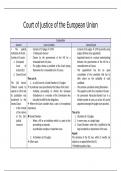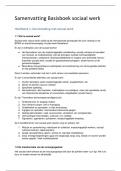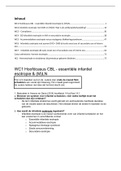Samenvatting
Summary Bevoegdheden en samenstelling van Council of the EU
- Instelling
- Universiteit Gent (UGent)
Ik heb een tabel gemaakt van elke institutie met de leerstof uit het hoofdstuk. Je kan in principe het hoofdstuk overslaan en enkel de tabellen leren, maar daar is wel meer context/voorbeelden.
[Meer zien]












